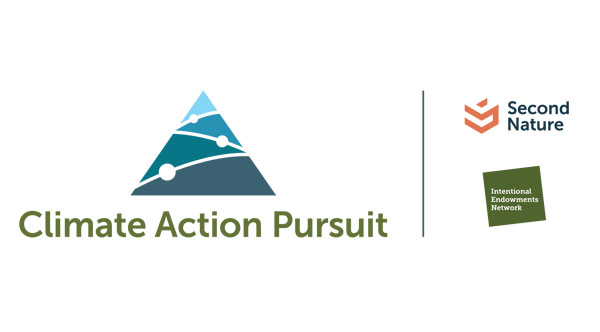Share this Story
VWU Serves as Host Institution for 2021 Climate Action Pursuit
Led by Second Nature and the Intentional Endowments Network, campus teams address climate priorities

University News | February 26, 2021
Virginia Wesleyan University is serving as a host institution for the 2021 Climate Action Pursuit: Toward Justice and Resilience, a higher education leadership summit led by Second Nature and the Intentional Endowments Network.
As a host institution, the University has made a formal commitment to participate in the pursuit as a campus cohort. VWU administrators, faculty, staff and students joined in the activities February 24-26 for the first of four milestone events.
“Our involvement demonstrates the University's leadership in sustainability and further underscores our Environmental Guiding Principles,” said VWU President Scott D. Miller, who sits on the Board of Second Nature, a prominent national environmental advocacy organization, and in 2020 completed a two-year term as chair of Second Nature's Climate Leadership Network (formerly The American College and University Presidents Climate Commitment).
VWU is a member of a select group of 440 institutions nationwide in the Climate Leadership Network, comprised of colleges and universities taking action on climate and preparing students through research and education to solve the challenges of the 21st century. The University is also one of 58 colleges and universities nationwide, along with 102 other endowed institutions, that are members of the Intentional Endowments Network, the leading network for endowment fiduciaries investing for a thriving, sustainable economy.
The Climate Action Pursuit process provides an opportunity for VWU and other institutions around the country to work together to accomplish goals in specific environmental areas central to the higher education sector and the nation’s climate priorities. This brand new, unique approach offers the framework and provides key checkpoints—in February, June, October and December—to accomplish shared goals.
The virtual conference focuses on three main themes: 1) reducing greenhouse gas emissions from college campuses; 2) aligning endowment investments with campus mission, including sustainability and social responsibility; and 3) addressing diversity, equity and inclusion while pursuing these goals. The collaboration across networks in higher education, finance, climate solutions, nonprofit, and government, enables participants to build more inclusive, sustainable, and thriving campuses and communities.
“This conference is an important opportunity for us to be inspired to continue our work in sustainability and environmental education,” said Dr. Elizabeth Malcolm, VWU Director of Campus Sustainability and Professor of Ocean and Atmospheric Sciences. “By framing the conference through the lens of social and racial justice, it reminds us that the goal of sustainability is to support the health of people and the planet. Solving the climate crisis requires progress in social justice. This is why we incorporated diversity, inclusion, and wellbeing in our University's Environmental Guiding Principles.”
In addition to Dr. Malcolm, VWU participants included President Scott D. Miller; Vice President for Academic Affairs Maynard Schaus; Professors Bill Gibson, Soraya Bartol and Katrina Henry; and staff members Micaela Morris, Amber Gruszezcka, Brian Kurisky and Sharon Laderberg.
Participating students included Phoebe Murrell, Olivia Deane, Juwon Seaborne, Ryan Westpfahl, Gabriella Olivieri, Makenna Goode, Claire Carter, Devin Calpo, Divinity Richardson, Alecia Fischman, Eddie McDonald, Holly Hater, Emily Petsko, Sophie Gonzales, Emily Smith, Brynn Vandergriff, and Ashley Roehrman.
Sophomore Divinity Richardson, an earth and environmental sciences major, participated in the session “Designing a Powerful Shared Intent” and found the experience to be meaningful and productive.
“We were able to interact through Slido, a Q & A and polling app, to share our thoughts. I was introduced to the idea of a MAST goal (Meaningful, Audacious, Specific, Timebound), which was interesting because I'm used to the concept of SMART goals. I feel that this workshop really gave me some pointers when it comes to collaboration, and how I can use it in school, clubs, or my future career."
Sophomore Devin Calpo, a double major in biology and earth and environmental sciences, also gained perspective during this first session of the summit.
“The recognition that issues like climate change or systemic racism exist as separate entities, but have areas of fusion, give rise to commonality to fight them.”
All teams will gather three more times in 2021 to focus on continued learning, planning, acting, and leading on equity and climate on campuses, in communities, and across our society.


